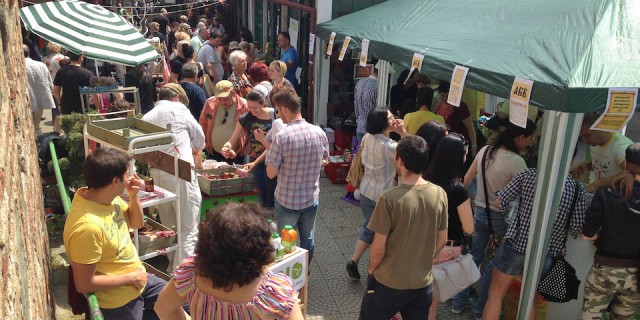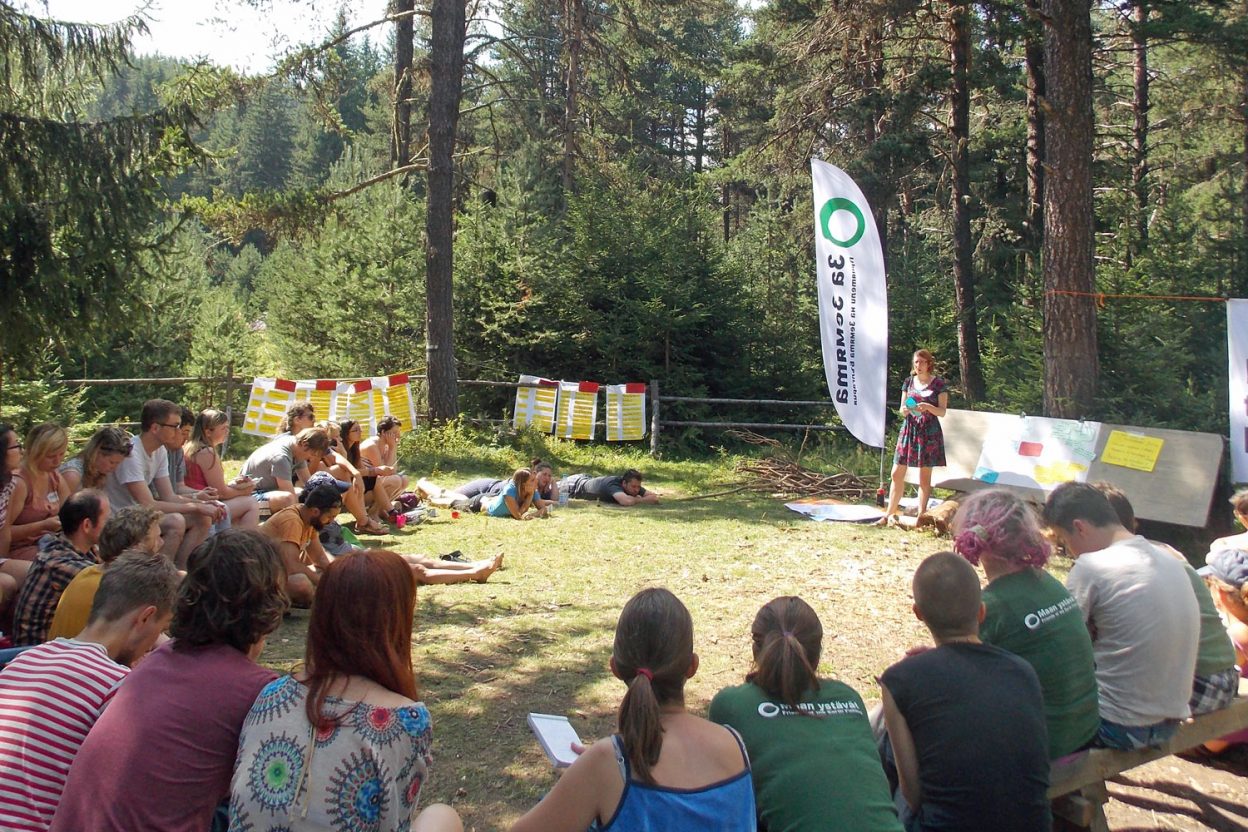“We did not only want to fight GMOs, but contribute something positive to society”, Ivo started. As he continued I was quickly drawn into his story. As we sat in the grass during a sunny day in Bulgaria’s Rhodope mountains it was not difficult to imagine the positive energy deriving from Friends of the Earth Bulgaria/Za Zemiata’s initiative. In 2006 Ivo, who has been a member of the organisation for 12 years, began what would become a highly successful food cooperative in Sofia. Now, 8 years later, the food cooperative is standing on its own two feet and Ivo has focussed his energy on the next big project: a farmers’ market.
Regaining control over your food
Ivo’s work is a typical example of food sovereignty; or as he describes it: the right of consumers to choose their food products and the policies behind them. In a food cooperative this is achieved by bringing both producers and consumers together. Local farmers provide food directly to people interested in healthy, sustainable and tasty food. In this way the participants in such a cooperative know who provides their food and how it is produced. At the same time, the farmer can rely on customers and is not bound by a fluctuating market or overcharging middlemen.
Explaining the successes of food sovereignty in Bulgaria
Hran Coop, as the food cooperation of Za Zemiata is known, took only two years to develop. About one hundred people work together in a self-organising, horizontal structure. Over the last couple of years, four more co-operatives have appeared, indicating how much interest Bulgarians have in working together on food sovereignty. This is not an easy feat in a country with one of the lowest average income figures in the European Union and a limited budget for buying food. Additionally, the small farmers participating have seen a boost in their sales and have a positive outlook for the upcoming years.
When Ivo and his partners from Friends of Za Zemiata noticed how powerful this new connection between citizens and farmers could be, they moved on to their next big target. They got in contact with a market hall in Sofia which was struggling with a decline in visitors and financial losses. Together with the firm managing the hall they agreed they could occupy it once a week to run a farmers’ market. During the market the farmers can show their products to anyone interested, while at the same time workshops, presentations and other social activities take place. The goal is not only to sell food, but also to exchange knowledge and create a social event for Sofia’s citizens. The formula proved so successful that on the opening day 500 customers visited the market and by most of the products were sold out by three o’clock – four hours before the market closed.

The challenges of success
However, as the market has become more and more successful, some interesting problems have arisen. For example, there is no regulation regarding food markets in Bulgaria, which has led to some head scratching on the part of the authorities when the organisers come up with new elements for the market such as musicians and cooking sessions. Also, the market has boomed to the extent that a location had to be found for a second, bigger market nearby. Now two food coordinators are occupied for 3 days a week, making sure farmers and customers are satisfied every time. While sales are practically guaranteed, the farmers at the market are not always happy. As they agreed to charge an amount beforehand on the basis of previous estimates, they can end up having less income than expected. Some organic farmers complain as well because there are many non-organic farmers also attending the market. However, Ivo explained that it is not only uncertain whether there are enough organic farmers in the region, but that Za Zemieta’s main philosophy is to increase the connection between consumers and producers and hence focus on local and good food.
Future possibilities
Ivo is well aware of the problems and the limitations of the farmers’ markets in their current form, and does not fear the consequences of expansion. He and his fellow coordinators monitor how much is sold at the market in a database which they share with the farmers. In this way, farmers know what sells well and what doesn’t and are better able to adjust to demands and improve their sales.
The market is flourishing like never before; they have a healthy surplus for investments and are looking for ways to renovate and improve the location. Ivo hopes that in the near future there will be no need for coordination from Za Zemiata and the market will run on its own. And I am sure the moment it does we will see Ivo already occupied on the next project to help society and increase food sovereignty.

